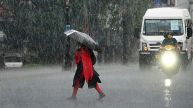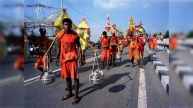Cases of phone tapping in different parts of India have come to the forefront more often in recent years. Many people are now asking: Is it legal for the police/government to eavesdrop on private phone calls? And what rights do citizens have regarding their privacy?
What Is Phone Tapping?
Phone tapping is the practice of secretly listening-in to someone’s phone calls without their permission. It is most often done by police, military and intelligence bodies when investigating someone’s activities.
Is Phone Tapping Legal In India?
Yes, technically phone tapping is legal, but only under certain circumstances. There are laws that prevent tapping without some methodology or regulation in place. According to Indian law, the government or law enforcement bodies must get permission first from the Home Ministry-to tap phones. Phone tapping in India can only happen if there is a valid reason for tapping to investigate public safety, national security or to prevent a crime.
What Are Your Rights?
Indian citizens enjoy a constitutional right to privacy. In 2017, the Supreme Court of India ruled explicitly that every citizen has the right to privacy. This means:
Authorities can’t tap your phones without sufficient legal grounds.
Phone tapping that is conducted unlawfully is a violation of your right to privacy.
If you are a victim of unlawful phone tapping, you can seek recourse in a court of law.
In a recent case, The Madras High Court on Wednesday delivered an important judgment making it clear that Section 5(2) of the Indian Telegraph Act, 1885 cannot be expanded and neither can the central or state governments be allowed to secretly tap phones to investigate crimes like corruption.
The petition was filed by the Union Ministry of Home Affairs (MHA), which was dismissed by Justice N. Anand Venkatesh. He said that it is the job of the legislature and not the judiciary to determine the limits of interference in a fundamental right through law.
The judge said that Section 5(2) sets a boundary line (Laxman Rekha), because measures like phone tapping directly violate the right to privacy. Now this right is considered a fundamental right under Article 21 to life and personal liberty.
According to this provision, the central or state government can allow phone tapping only in two situations – either in the interest of public safety or in a state of public emergency. The role of the court is to see whether these two conditions apply or not.
Justice Venkatesh said that the role of the judiciary is to protect rights, not to open new avenues to restrict them. Unless Parliament or the Legislature makes any amendment in this direction, the court cannot expand the scope on its own.
He referred to the historical evolution of the right to privacy, saying that it was recognized by the Supreme Court in the 1996 PUCL case and then reaffirmed by the Constitution Bench in the 2019 K.S. Puttaswamy case.
The judge stressed that even if the purpose is noble, such as the prevention of serious crimes like corruption, phone tapping cannot be considered legally valid unless it meets the conditions mentioned in Section 5(2).
The verdict was delivered on a petition filed by P. Kishore of Chennai in 2018. He had challenged that the permission given by the Central Government to the CBI to tap his calls on 12 August 2011 was illegal. On the basis of those calls, Income Tax Department officer Andasu Ravinder was arrested on charges of taking a bribe of ₹50 lakh.
The court found that there was neither any public emergency nor any threat to public safety in this case, so there was no validity to phone tapping. The judge ordered that these calls cannot be used for any purpose, not even as evidence in the court.
He termed the order issued by the Home Secretary as unconstitutional, as it was in violation of Section 5(2) and it was not even presented before the Review Committee, which is a necessary procedure.
The judge said that if the Review Committee feels that the intercepted material has been collected in violation of the law, then it has the right to destroy it. In such a situation, the CBI cannot use this material in any form.
Also Read: South China Sea A ‘Great Concern’ For Quad, Says EAM S Jaishankar












